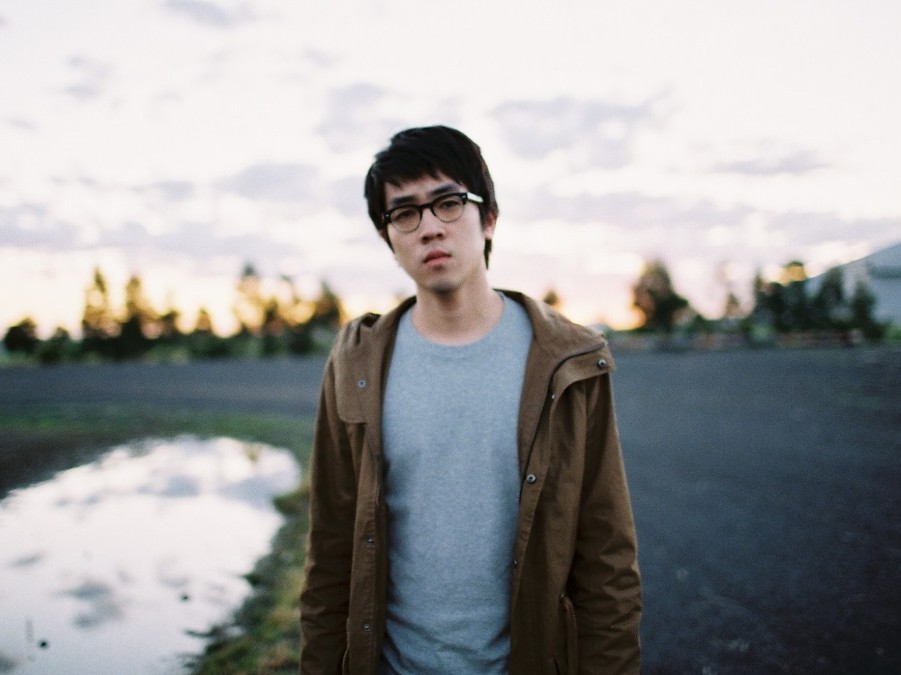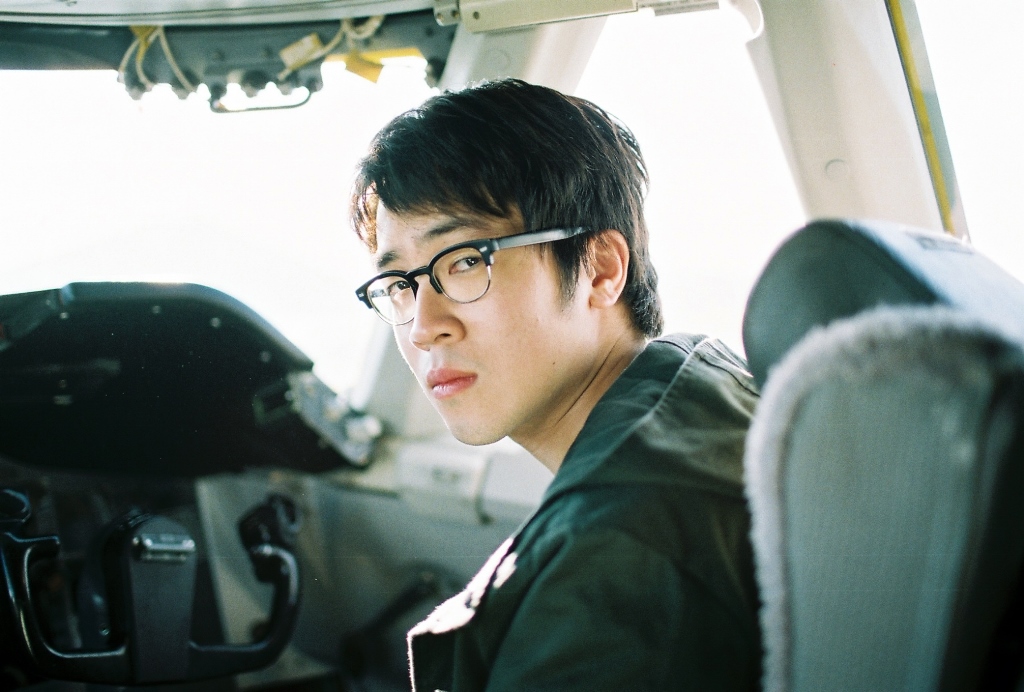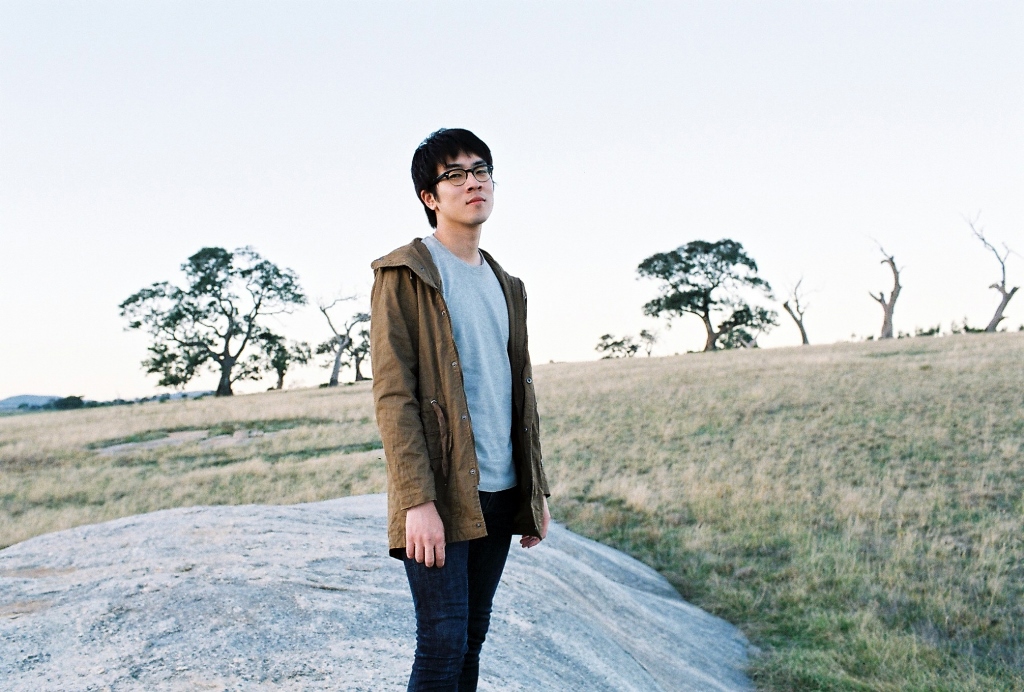Charlie Lim Reconciles His Inner Duality
 Thirsty for JUICE content? Quench your cravings on our Instagram, TikTok and WhatsApp
Thirsty for JUICE content? Quench your cravings on our Instagram, TikTok and WhatsApp

Images Aimee Han
TIME/SPACE, the 2015 double EP from Singaporean singer-songwriter Charlie Lim, was a tender body of work that explored his deep rumination over topics that pertained to a willing heart and contemplative mind. The record, too, showcased his foray into electronic pop and r’n’b production. Though this interview is highly delayed, when the interview opportunity arose in conjunction with Sing Jazz Festival ‘16, we simply could not resist. JUICE managed to get a hold of Charlie to ask him about the formation of the double EP – from its unique packaging and Kimbra’s connection to the conception of the record to poking fun at the media’s pegging of him as a melancholic man and his meticulous songwriting process.
Why did you decide to separate the ‘singer-songwriter’ songs and the synth-y pop songs into TIME and SPACE respectively? Was there no way of melding it all cohesively?
The whole concept came about as a reflection of struggling to find my own sound; it was a really difficult period of at least three years of constant writing and re-writing, while trying to figure out different production styles and arrangements to ideas I had written, but [I] wanted to dress them up in a way that felt good to me. I ended up having a massive writer’s block with too many varied influences, but no proper sieve to distil them into something cohesive.
The solution was then to try and turn my own insecurities of having this bipolar, almost schizophrenic mindset of where I was and make that part of my own identity. Playing with this sense of duality helped me to approach things more conscientiously. From a listener’s point of view, I always wanted to change up the format of how you would listen to a typical album, so breaking it down into two separate camps also made it interesting because you’re forced to focus on digesting the music in sections – similar to how you would have a side A and B on a vinyl LP.
The album was recorded in Kimbra’s home studio, and it was briefly alluded that the books in her library were quite an influence on you. In addition to being a pop star, Kimbra herself is quite a sage. How has being her friend and being around her possessions affected you in relation to making the album?
Kimbra’s a dear friend and definitely someone I look up to as an artiste. We both love reading about theology and philosophy, and her library was just so on point with what I was into at the time. I got to crash her Melbourne home when I was looking for a place to write, and that was when I decided that my new record was going to be a double EP called TIME/SPACE. That concept was materialised when I was living at hers, but most of the album recording itself was elsewhere… and even then, it took about another year and a half to finish.
Is it true that ‘Bitter’ and ‘Conspiracy’ formed the foundation of TIME/SPACE? How so?
Yup, that was my turning point – the demos for those two songs were done while I was at Kimbra’s, and that spawned the entire road map of how I wanted to work on the rest of the record.

If we’re not mistaken, the packaging of the album was designed in a way that would allow listeners to literally rip apart time and space. Why did you decide to make that enormous feat humanly possible?
That’s a good observation (laughs)! Our design company HJGHER, who are a great bunch of really dedicated people, came up with a few mock-ups of the album sleeve and the French fold concept felt really appropriate. We wanted the theme of duality to run through every aspect of the album’s design, with a slight nod to the unavoidable sci-fi theme surrounding TIME/SPACE.
There are lines in ‘Blah Blah Blues’ such as, “The truth is not enough for the show,” and “It’s kinda lucrative to write a love song.” We’re guessing you’re poking fun at your vocation. Why did you decide to do this satire of sorts?
Well, it’s poking fun at myself… I’ve been called ‘the melancholic man’ one too many times. So of course, I had to be a smart ass and wanted to be all self-aware and meta about it, but ultimately reaching the conclusion that it’s impossible to run away from the inevitable.
There’s a tendency for people to describe your songs as melancholic. Though that emotion certainly colours your songwriting, do you think people are quick to latch on to the obvious emotion when it’s actually much more nuanced than just sadness?
I guess so. Melancholy doesn’t mean depression, though. It’s a state of mind that every person needs in order to question and challenge the way things are. My job is to observe and understand what I feel when something affects me, and then try to make something beautiful out of it. Whether one interprets that as ‘sad’ is not my prerogative, but I personally feel liberated each time I finish a song and get to perform it.
One thing that has attracted us to your work is your lyricism; you have the ability to express so vividly and cleverly in your songs. How did you come to develop this craft of yours?
Thanks. I guess it requires a lot of observing, extrapolating, and constantly drawing parallels with things you feel strongly about. I don’t think I’m anywhere near where I want to be, though. I’m a very slow writer. Lyrics can be so tedious if you want to go about it the way I do.

Khalil Fong gave you a shout out about a song, and we saw on your Facebook page that you’ve been hanging out with him in the studio. Are you guys possibly working on something together?
Yup, Khalil’s awesome. He kindly invited me to his place in Hong Kong where we just hung out and jammed for a good three days, recording a whole bunch of ideas in his studio. It was good fun. He’s busy working on releasing his new album at the moment, but once things are a bit more settled, we want to work on more material together, not just as a collaboration, but also writing for other artistes too.
Can you tell us about the story behind the music video for ‘I Only Tell The Truth’?
It’s probably not the wisest choice from a marketing angle because it’s no radio hit, but I decided that if I were to do a music video, it had to be for ‘Truth’ because it was my favourite song off the record. I think it’s very reflective of my own state of mind, and Felipe Soares (director) captured that brilliantly. It’s a miracle how we pulled everything off; from finding a decommissioned jumbo jet to shooting at sand dunes and drowning scenes at the beach during the dead of winter. It was one of the craziest things I’d ever done, and am so glad we did it.
The narrative of the script is incredibly schizophrenic and meant to be quite open to interpretation. But personally, I could draw parallels from the scenes of the film with my own experiences – whether it’s heartache from lost or unrequited love, frustration from searching for meaning through the daily grind, the constant longing to find someone you can relate to, and the feeling of being alone in a beautiful but frightening world.

 Get Audio+
Get Audio+ Hot FM
Hot FM Kool 101
Kool 101 Eight FM
Eight FM Fly FM
Fly FM Molek FM
Molek FM